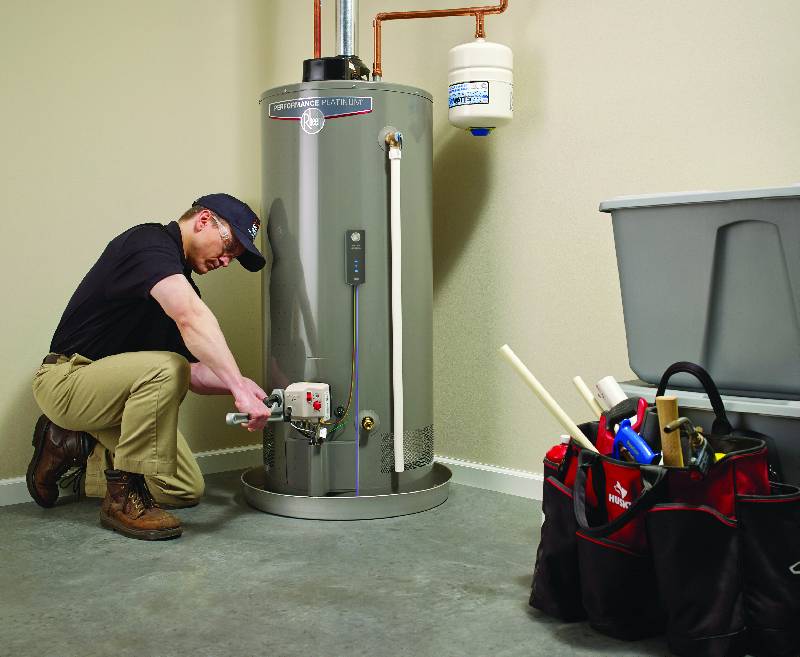Handling Everyday Water Heater Troubles
Handling Everyday Water Heater Troubles
Blog Article
Are you searching for tips about Common Problems with Your Home Water Heater?

Envision beginning your day without your routine warm shower. That already establishes a poor tone for the remainder of your day.
Every home needs a dependable water heater, yet only a few know exactly how to take care of one. One easy method to maintain your hot water heater in top shape is to look for mistakes regularly as well as repair them as soon as they appear.
Keep in mind to switch off your hot water heater prior to smelling about for faults. These are the water heater faults you are most likely to experience.
Water also warm or also cool
Every hot water heater has a thermostat that establishes just how warm the water obtains. If the water entering your home is too hot regardless of establishing a convenient maximum temperature level, your thermostat may be defective.
On the other hand, as well cold water might be due to a fallen short thermostat, a busted circuit, or inappropriate gas flow. As an example, if you utilize a gas water heater with a damaged pilot burner, you would obtain cold water, even if the thermostat is in excellent condition. For electrical heaters, a blown fuse might be the offender.
Not nearly enough hot water
Hot water heater can be found in numerous dimensions, relying on your hot water demands. If you lack warm water before everybody has actually had a bathroom, your water heater is too little for your family size. You need to consider installing a larger water heater storage tank or opting for a tankless water heater, which takes up less space and is more resilient.
Unusual noises
There are at least five sort of sounds you can hear from a water heater, yet one of the most usual analysis is that it's time for the water heater to retire.
To start with, you should know with the regular seems a water heater makes. An electric heater might seem different from a gas-powered one.
Standing out or banging noises usually suggest there is a slab of sediment in your containers, as well as it's time to cleanse it out. On the other hand, whistling or hissing noises may merely be your valves allowing some pressure off.
Water leakages
Leaks can come from pipelines, water connections, shutoffs, or in the worst-case scenario, the tank itself. Over time, water will certainly corrode the container, and discover its way out. If this takes place, you need to change your water heater asap.
However, before your modification your entire tank, make certain that all pipes remain in location and that each shutoff works perfectly. If you still need assistance determining a leakage, call your plumber.
Rust-colored water
Rust-colored water indicates among your hot water heater elements is corroded. Maybe the anode pole, or the container itself. Your plumber will be able to determine which it is.
Warm water
Despite how high you established the thermostat, you won't get any warm water out of a heating unit well past its prime. A water heater's efficiency might minimize with time.
You will additionally obtain lukewarm water if your pipes have a cross link. This implies that when you turn on a faucet, hot water from the heating unit streams in alongside routine, cold water. A cross connection is easy to area. If your warm water taps still run after shutting the water heater valves, you have a cross connection.
Discoloured Water
Corrosion is a significant root cause of filthy or discoloured water. Corrosion within the water storage tank or a falling short anode pole might create this discolouration. The anode rod protects the tank from rusting on the within and need to be inspected annual. Without a pole or a properly operating anode pole, the hot water quickly rusts inside the storage tank. Contact a specialist hot water heater specialist to determine if replacing the anode rod will take care of the trouble; if not, replace your water heater.
Conclusion
Ideally, your water heater can last 10 years before you need a modification. Nevertheless, after the 10-year mark, you might experience any one of these mistakes a lot more consistently. Now, you need to include a new water heater to your budget.
How To Troubleshoot 3 Common Water Heater Problems in Twin Cities
The Water Heater Is Leaking
A leaky cold water inlet valve A loose pipe fitting A leaky temperature and pressure relief valve A corroded anode rod A cracked tank Turn Off Your Water Heater:
Shut off your gas water heater by turning the gas valve on the unit to the “OFF” position. Shut off your electric water by switching its power off at your electrical panel. Look for a two-pole breaker labeled “water heater” and turn it to the “OFF” position. Move the ball valve connected to the water heater to be perpendicular to the piping at a 90° angle. Look for the Leak:
Depending on whether the water is coming from the tank's top or bottom, you’ll want to look for the leak in different locations.
If the leak comes from the top of the tank, carefully look for water escaping from the cold water inlet valve or loose pipe fittings. Rusted hot and cold water valves can have loose connections with the tank, with water leaking out of them.
https://mspplumbingheatingair.com/blog/how-to-troubleshoot-3-common-water-heater-problems
I recently found that content about Common Problems with Your Home Water Heater when browsing the search engines. In case you enjoyed reading our post plz be sure to pass it around. We enjoy reading our article about Water Heater Repair and Troubleshooting.
Call Us Today Report this page